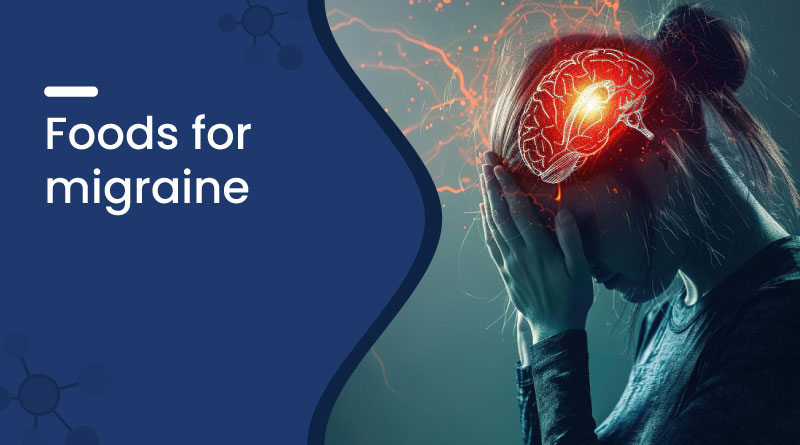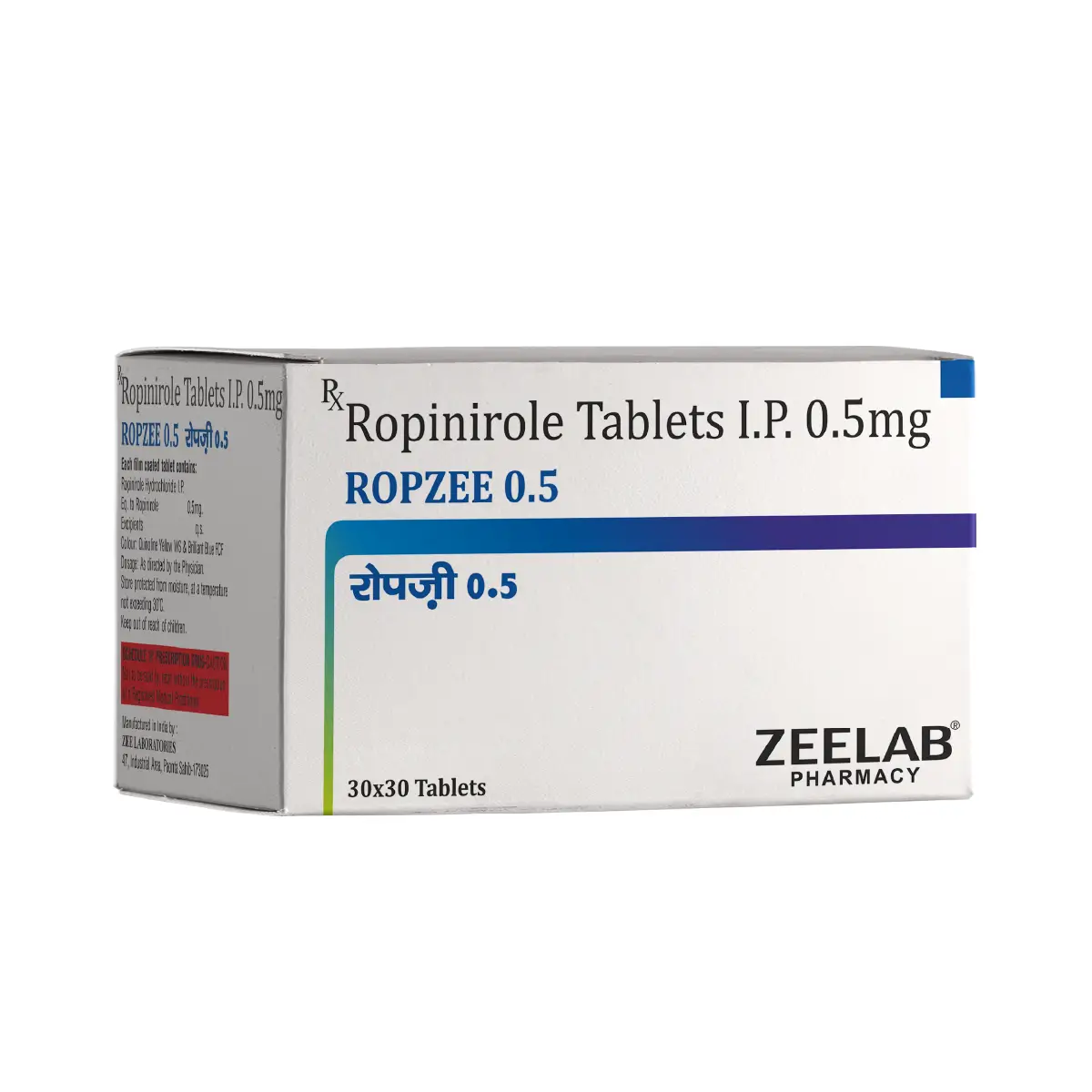Best Foods for Migraine Relief: What to Eat & Avoid


Migraines can be painful and disruptive, often affecting daily routines and quality of life. They can be caused by a variety of factors that may be genetic, neurological, or environmental. While medications can help manage the symptoms, certain foods may also play a role in reducing the frequency and severity of migraine attacks. Eating the right foods and avoiding known triggers can make a noticeable difference in managing this condition.
Does Diet Play a Role in Preventing Migraine?
Different types of food can leave a different impact on every individual. Some individuals may experience a migraine attack due to certain trigger foods, while others may benefit from specific nutrients that soothe inflammation, stabilize blood sugar, or promote brain health. Keeping a balanced diet, eating meals regularly, and staying hydrated are key factors in controlling how often and how intensely migraines occur.
Best Foods for Migraine Relief
1. Magnesium-Rich Foods
Magnesium supports migraine relief by calming overactive nerves, relaxing blood vessels, and reducing inflammation. It also helps regulate serotonin, a brain chemical involved in migraine attacks. Low magnesium levels are often found in people with migraines, making it an important mineral for prevention and reducing symptom intensity.
- Spinach
- Avocado
- Almonds
- Pumpkin seeds
- Black beans
- Bananas
Also read - Magnesium for Migraines
2. Omega-3 Fatty Acids
Omega-3 fatty acids help reduce migraine severity by lowering inflammation, improving blood vessel function, and supporting brain health. They may also decrease the frequency of migraine attacks over time.
- Fatty fish like salmon, mackerel, and sardines
- Chia seeds
- Flaxseeds
- Walnuts
3. Hydrating Fruits and Vegetables
Dehydration is a common migraine trigger. Hydrating fruits and vegetables help prevent migraines by maintaining fluid balance, reducing dehydration, and supplying essential vitamins and antioxidants that support brain function and reduce inflammation.
- Cucumber
- Watermelon
- Oranges
- Strawberries
- Celery
4. Complex Carbohydrates
Complex carbohydrates help manage migraines by stabilizing blood sugar levels, preventing sudden spikes and drops that can trigger headaches. They help maintain consistent energy levels and promote healthy brain and nerve function.
- Oats
- Brown rice
- Quinoa
- Sweet potatoes
- Whole wheat bread
5. Foods Rich in Riboflavin (Vitamin B2)
Riboflavin (Vitamin B2) supports energy production in brain cells and helps reduce oxidative stress, both of which play a role in migraine prevention. Regular intake may lower the frequency and duration of migraine attacks in some individuals.
- Eggs
- Lean meats
- Milk
- Yogurt
- Mushrooms
- Leafy greens
Foods and Factors That May Trigger Migraines
Not every person reacts to a certain food in the same way another person does. There are some food items reported as migraine triggers.
- Aged Cheeses: They contain tyramine, a natural compound linked to migraines in sensitive individuals.
- Caffeinated Beverages: A small amount of caffeine can help with migraines, but excessive intake or withdrawal can trigger attacks.
- Processed and Cured Meats: Sausages, hot dogs, and deli meats often contain nitrates or nitrites, which may enlarge blood vessels and trigger migraines.
- Chocolate: It contains caffeine and beta-phenylethylamine, substances that can trigger migraines in certain individuals.
- Artificial Sweeteners: Especially aspartame, often associated with migraines in sensitive individuals.
- Stress and Anxiety: Emotional stress is among the most frequent triggers that can lead to migraines.
- Hormonal Changes: Fluctuations during menstruation, pregnancy, or menopause often influence migraines.
- Environmental Factors: Bright lights, loud noises, strong smells, and changes in weather or altitude.
- Medications: Some drugs, including certain birth control pills and vasodilators, may trigger migraines.
- Sleep Disturbances: Both lack of sleep and oversleeping can trigger migraines.
Home Remedies for Migraine Relief
- Ginger Tea: Known for its anti-nausea and anti-inflammatory benefits.
- Peppermint Oil: Applied to the temples, it may reduce headache intensity.
- Cold Compress: Applying a cold pack to the head can provide temporary relief during an attack.
- Magnesium Supplements: Under medical guidance, magnesium citrate or glycinate may be helpful.
Also read - Best Magnesium Supplement In India
Conclusion
While migraines can be challenging to manage, incorporating the right foods into your daily diet can play a supportive role in reducing their frequency and intensity. Eating more foods that may prevent migraines while avoiding common triggers can better support your brain health and overall well-being. As always, consult a healthcare professional before making significant dietary changes, especially if you have chronic migraine or other underlying conditions.
Also Read - Medicine For Migraine in India
Frequently Asked Questions (FAQs)
Q. What are the causative factors of migraine?
A. Migraines are caused by a combination of genetic, neurological, and environmental factors, including changes in brain chemicals, nerve signals, and blood flow.
Q. How can I prevent migraines?
A. Maintaining a balanced diet, staying hydrated, managing stress, and getting regular sleep can help reduce migraine frequency.
Q. Is caffeine good or bad for migraines?
A. Moderate caffeine may relieve migraines, but excessive use or withdrawal can trigger attacks.
Q. Are migraines hereditary?
A. Migraines often run in families, suggesting a genetic component in their occurrence.
Recent Blogs
Disclaimer : Zeelab Pharmacy provides health information for knowledge only. Do not self-medicate. Always consult a qualified doctor before starting, stopping, or changing any medicine or treatment.

















 Added!
Added!